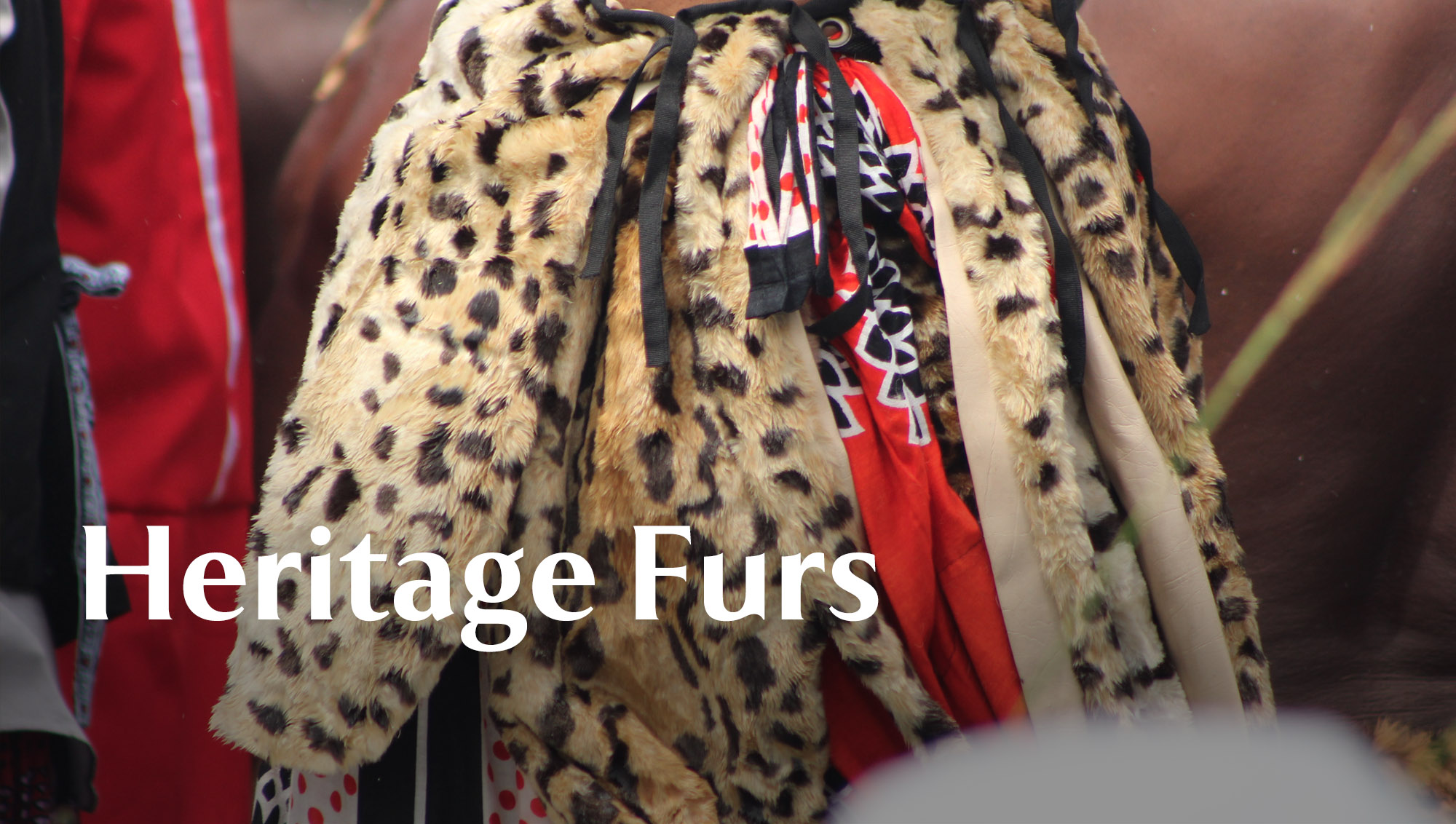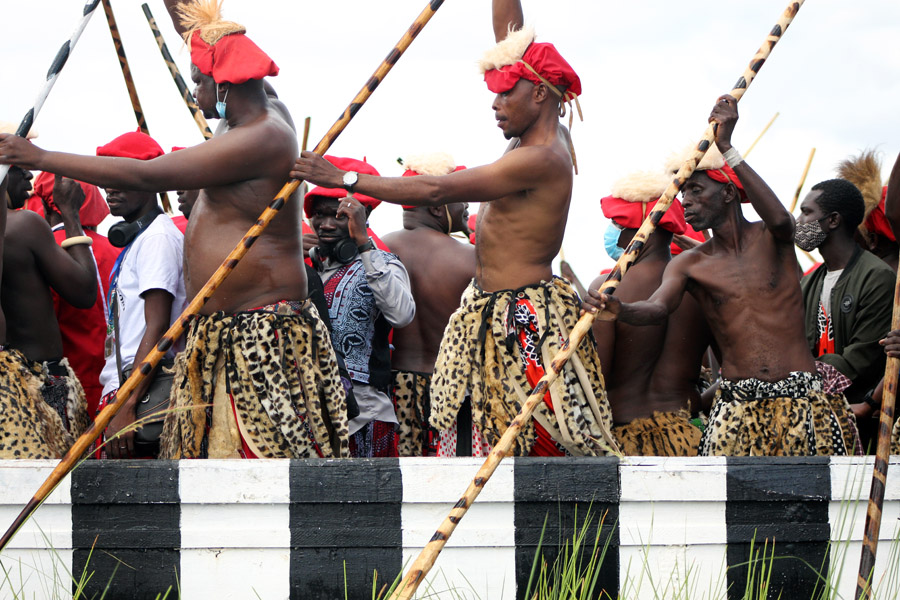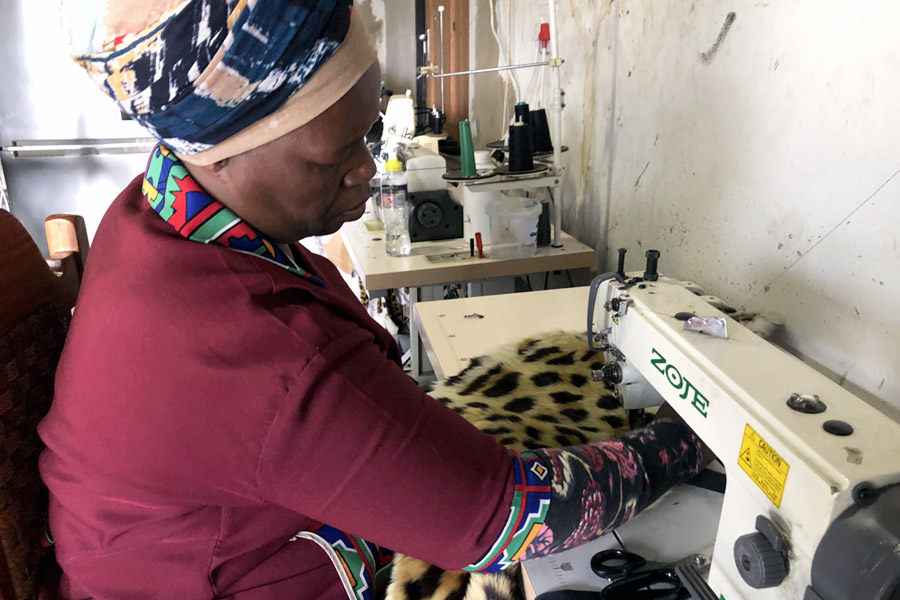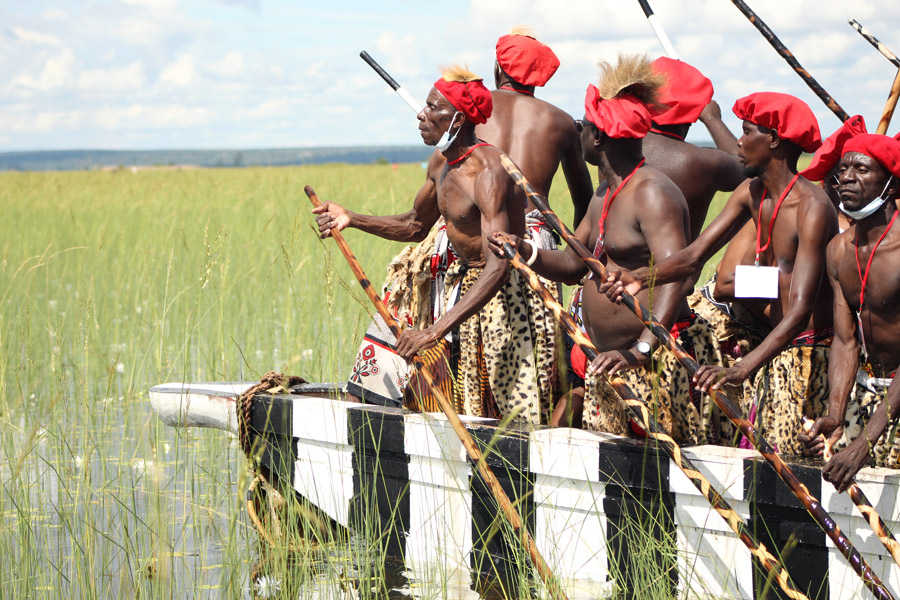
A Cultural Reverence for Wild Cats
Communities across Africa have a proud tradition of using wild cat skins as regalia for cultural and religious ceremonies. The use of these skins frequently stems from a deep respect for these animals as symbols of power, prestige, courage, grace, stealth and fierceness. However, this reverence has led to unintended consequences on wild cat populations. With growing human populations, increasing demand for furs and dwindling leopard populations, what was once a sustainable practice for ceremonial purposes has become unsustainable. The adoption of Heritage Furs—high-quality, synthetic fur alternatives that retain the beauty and significance of authentic furs—allows these vibrant cultural and religious ceremonies to continue for many years into the future with the same beauty of the authentic furs but without the threat to wildlife populations.
Through the Furs for Life program, over 22,000 Heritage Furs have been supplied to southern African communities consisting of over 7 million members. Celebrating its 12-year anniversary in 2025, Furs for Life continues to grow with new partners joining the effort annually. Learn more about our partners below.
Shembe
After discovering that followers of the Nazareth Baptist Church eBuhleni, commonly known as the Shembe Church, were using as many as 15,000 leopard furs during religious gatherings, Panthera, in partnership with the leadership of the Shembe Church, initiated the Furs for Life program in 2013. Working with the Shembe community and graphic designers, Panthera created high-quality and affordable synthetic leopard fur capes, known as Heritage Furs.
The Shembe traditionally wore an authentic leopard skin amambatha in their ceremony called the Mgidi, wherein men dance in a prayer. Now, nearly 50 percent of garments worn during the Mgidi are Heritage Furs, thanks to the support of the Department of Environment, Food and Rural Affairs Illegal Wildlife Trade Challenge Fund, Cartier for Nature Philanthropy, and the Royal Commission for AlUla. The program has distributed more than 19,500 capes to the Shembe Church, preserving the Church’s traditions and rituals, while helping protect thousands of wild leopards.
“Our groundbreaking 'Furs for Life' program is a conservation demand-reduction endeavor that has likely saved more big cats than any other of its kind while simultaneously helping preserve rich cultural-religious traditions.”
Tom Kaplan, Ph.D.
Co-founder and former Executive Chair, the Global Alliance for Wild Cats
Lozi: Preserving Tradition in the Kuomboka and Kufuluhela Ceremonies
The Lozi People in western Zambia wear a mix of leopard and serval skin Lipatelo skirts and lion mane Mishukwe head gear while paddling their Litunga (King) and Queens on the Barotse flood plains during the annual Kuomboka and Kufuluhela events and other traditional ceremonies.
In 2017, the Barotse Royal Establishment (BRE; leaders of the Lozi People) requested that Panthera create a synthetic Heritage Fur to replace the use of authentic animal skins in a bid to protect wild cat populations and preserve their rich cultural traditions. Since the establishment of the close partnership, Panthera has donated approximately 1,350 Heritage Furs to the BRE so that the paddlers chosen to participate in the ceremonies no longer illegally hunt or purchase authentic skins from traditional hunters and traders. The donated Heritage Furs are currently stored on the BRE royal grounds, distributed to the selected participants before the ceremonies, and then reclaimed and taken back to storage. This ensures every paddler has access to a Heritage Fur, extending the longevity of the garments and enhancing the sustainability of the initiative.
With conservation at the heart of the Lozi people, this solution simultaneously protects wildlife while maintaining cultural pride. Since the launch of the project, the Heritage Furs have received overwhelming support from the leadership of BRE and the broader Lozi community. During the 2024 Kuomboka over 95 percent of paddlers on the Litunga’s royal barge were wearing Heritage Furs.
African Congregational Church: Fusing Faith and Conservation
In 2024, Panthera partnered with the one-million-member African Congregational Church (ACC) in South Africa to replace the use of leopard skin hats in ceremonial regalia with synthetic Heritage Furs. A significant program goal is also to provide an alternative source of income for women reliant on tailoring illegally sourced wildlife products and increase their skills training, including business management, that will enable independent operation of tailoring micro-enterprises. As of March 2024, Panthera has provided 20 sewing machines and tables, equipment and training to 20 women from the ACC to tailor thousands of Heritage Fur hats and other garments, including school uniforms.
Ngoni: Where Culture Meets Conservation
Building on the success of the Furs for Life program with the Shembe in South Africa and the Lozi of Western Zambia, the Ngoni of Eastern Zambia have joined this growing ethos to preserve their traditions and the wildlife that inspires them. In February 2025, the Ngoni Royal Establishment, through the Ncwala National Organising Committee, partnered with the Furs for Life program to adopt Heritage Furs.
Ngoni people are known for their rich culture and time-honored traditions, like the famous Ncwala ceremony, which unites Ngonis from Zambia, Malawi, Tanzania and Mozambique to celebrate the onset of the harvest season or first fruits and pay homage to their ancestors. During this and similar events, Ngoni dancers, warriors, leaders and royalty adorn themselves in wild cat skins including lion for the King, leopard for amakhosi, other traditional leaders and royalty, and serval, genets and other wild animals for other members. Ngonis revere these animals and hold them to be important symbols of power, courage and grace. They have used these wild cat skins to elevate the Ncwala and other Ngoni ceremonies for generations.
However, the Ngoni are realizing that, while their use of wild cat skins comes from their deep admiration for these majestic animals, it is no longer sustainable. As they work to preserve their treasured traditions for future generations, they also acknowledge the urgent need to protect lions, leopards, servals and other wild cats central to their traditions.
Over time, Heritage Furs will replace authentic furs in traditional attires used in ceremonies like the Ncwala, keeping the beauty of the ceremonies while also conserving cultural events and wildlife.
The Heritage Furs have been endorsed by InyandeZulu Inkosi YaMakhosi King Mphezeni IV, King of the Ngoni in Zambia, Malawi, Tanzania, Burundi and Mozambique.





